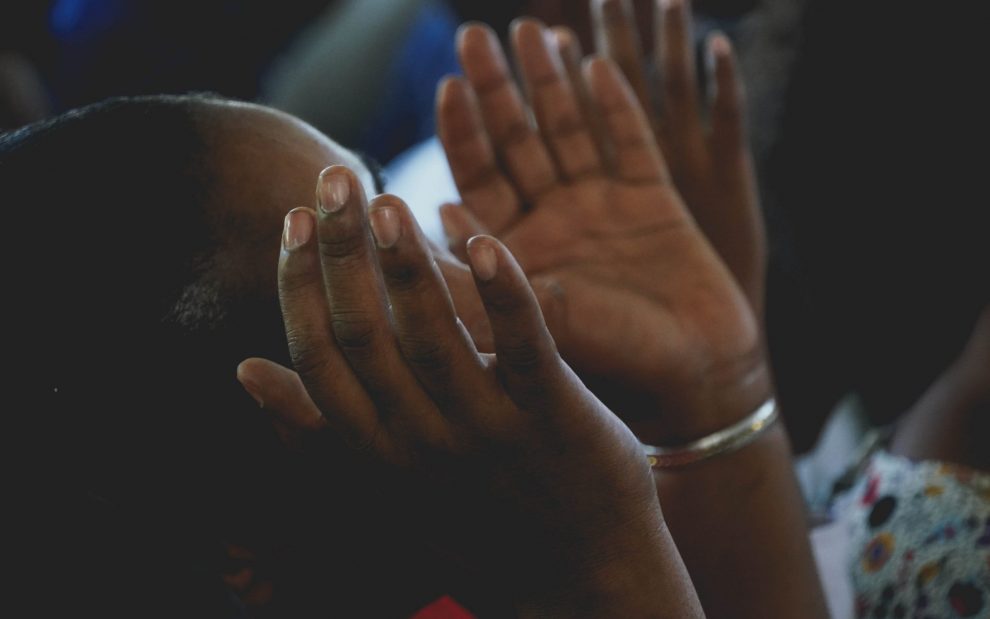The jackhammer blast of gunfire ripped me from my sleep. Normally, late-night street sounds on Route de Delmas in Port-au-Prince, Haiti are no more alarming than the incessant barking of dogs or the crowing of sleepless roosters convinced that streetlights are the harbingers of the dawn. But a burst from an automatic rifle right out in the street with nothing between me and the guy pulling the trigger but my jammies and a thin cement wall snapped my eyes open like popcorn.
Although it had only been a little over a month since the bloody 1991 military coup led by General Raoul Cedras that ousted Haiti’s first elected president, Jean-Bertrand Aristide, my intrepid group from the Diocese of Norwich came anyway to celebrate the feast of All Saints and All Souls at our mission in the city.
It’s a big holiday in Haiti, which is 75 percent Catholic. But for Haitians, taking care of the souls of the dearly departed carries added significance. You see, the traditional religion of Haiti, some might say the real religion of these islanders, is what their slave ancestors brought along with them from Africa: voodoo.
Not the pins-in-a-doll, zombie jamboree kind you see in movies—that’s Hollywood—but a genuine faith in one God and a bunch of spirits, called loa, who take care of things. These loa, which include your dead relatives, can be very helpful when you need a friend, like a brother-in-law who works for the people who run the universe. So Haitians try to stay on the good side of their relatives, especially after they’re dead.
I never took much interest in praying for the dead myself until Marla, the one person next to God who was deserving of all my love, lost control of her motorcycle and slammed into a guardrail.
For the first time in my life there was somebody “out there” that I knew intimately who was going through whatever experience one goes through when you pass over to the other side. I hoped she was OK. I prayed she was OK. After all, despite my devotion to her, she wasn’t perfect. Could her rough edges be worked out in the next life? Well, yeah. So I hoped, and I prayed.
Praying for the dead, one of several Catholic traditions that dance like angels on the head of a single scriptural pin, evolved from 2 Maccabees 12:43–46. The reasoning goes: If we expect life to continue after death, then it would be silly not to continue praying for people who die.
Over the years since Marla’s death I’ve compiled a short list of defunct friends I pray for: Gaylon, who got run over by a truck; Jim, who met his unfortunate end shortly after a misstep on a mountain; and Al, who tried to fly his airplane under the power lines and, well, missed.
My own happy vision of the hereafter includes a backslapping reunion with these guys, all of whom I’m sure have no one praying for them but me.
When I die, I imagine some things will change. I don’t think my job will concern me much, for example. But my need to develop as a person will continue. I mean, I’m not there yet, and if I die today, which is a distinct possibility considering the speed at which I frequently drive, I’d have a way to go before I could even consider being comfortable in a position that close to God. So, just as I would ask for your prayers in the worldly matter of my job, I would also request your prayerful assistance after I cash in my chips.
And while I like praying for my friends and family who have gone before me, I wasn’t quite prepared to join their conga line off this mortal coil that night in Haiti, my eyes as big as dinner plates, my heart banging like a steam pipe, waiting for the sharp splat of lead against thin cement, ready to fling myself on the floor and scramble out the door like a crab.
Hearing only the tinkle of bouncing brass shell casings fade into the din of dogs and roosters, I figured it was just one of Raoul’s soldiers on his way home from a party, M-14 in one hand, bottle of Barbancourt in the other.
As a good Catholic, he probably poured out an offering of rum along with his blast of bullets to gladden the loa of his departed relatives. Me, I just write their names in the book at church on All Souls Day and say a little prayer.
Image: Unsplash/Abel Marquez














Add comment